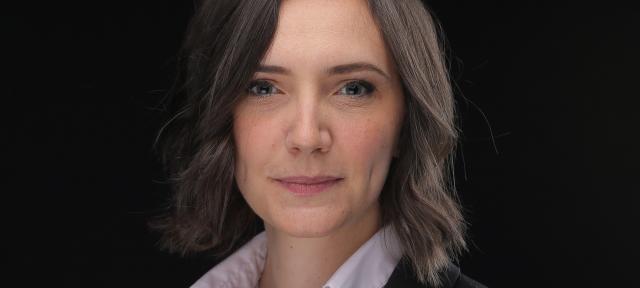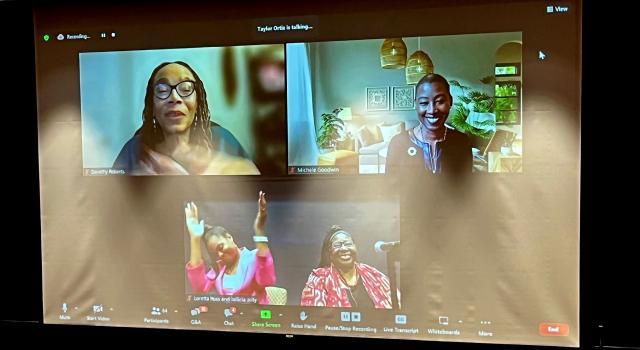Seeking Justice for the Disenfranchised

I’m a professional storyteller. As a lawyer who practices exclusively in civil-rights litigation on behalf of low-income people, the most important part of my job is to tell a story in a compelling way so that a jury or judge will find in favor of my client.
Everyone in my family was nervous when I enrolled at Hampshire and decided to study storytelling. I distinctly recall many questions about what kind of job I could get after graduation, and what it even meant to study stories.
I had no clue what I was doing or where I would end up, and no vision about what the future held for me. But I had a fundamental belief that I was meant to do something bigger and more academically rigorous than a cookie-cutter degree program could offer, so I took the leap of faith. Looking back, I’m eternally grateful that I followed my gut instinct.
My Div II centered on storytelling as a method of political power and resistance. My Div III was titled “embodied stories,” and explored new ways of telling stories about trauma through art. My entire Hampshire education was steeped in the ideals of critical race theory and feminism.
At Hampshire, I learned how to fiercely advocate for what I believe in: I had to defend my arguments every single day, and my classmates and professors never let any weakness slip by. The constant mental agility made my studies in law school much easier than they had been at Hampshire. Studying for the California and New Mexico bar (and passing both on the first try) was less strenuous than my four years as an undergraduate. Hampshire’s academic program is challenging and at times exhausting, but it gave me intellectual stamina.
My job is to assist my clients in telling their story. And my work requires that I help them connect their stories to the law (which is often written in ways to keep low-income people disenfranchised). Through telling stories, my clients and I constantly push the legal system to officially recognize the injustice of institutionalized oppression.
Many of my cases deal with subtle forms of racism, classism, xenophobia, sexism, and transphobia. It can be difficult for my clients to explain how institutionalized racism lies at the root of the denial of their right to a free public education (in California, educational rights are part of our state constitution). It’s difficult for families facing homelessness to explain in a court of law that their landlord’s attempt to kick them out is really about pushing out disabled tenants. It’s painful for rape victims to explain that when their employer sexually harassed, assaulted, and raped them, the damages they suffered were far more than just the amount of a lost paycheck. They had to go to work every day knowing that their employer treated them horrifically because of their gender.
At Hampshire, I learned how to fiercely advocate for what I believe in: I had to defend my arguments every single day, and my classmates and professors never let any weakness slip by.
I practice in a deeply conservative county in rural California where it’s extremely difficult to win a civil-rights case. And yet I’m winning, and bringing meaningful relief to my community. Hampshire taught me to never, ever accept injustice — and to fight harder, smarter, and with more gusto than my opponents.
Hampshire was the first place where I was surrounded by people who were as adventurous, wild, intelligent, and driven as I am. Being enmeshed in a community of people who shared my passion for getting things done and thinking outside the box was an exhilarating experience. Studying storytelling at Hampshire enabled me to become the innovative attorney I am today.
I have faith in all students who come to Hampshire. You’re part of something revolutionary: the idea that your own desires and passions should be the driving force behind your studies.
This essay reflects the opinions of the author.



